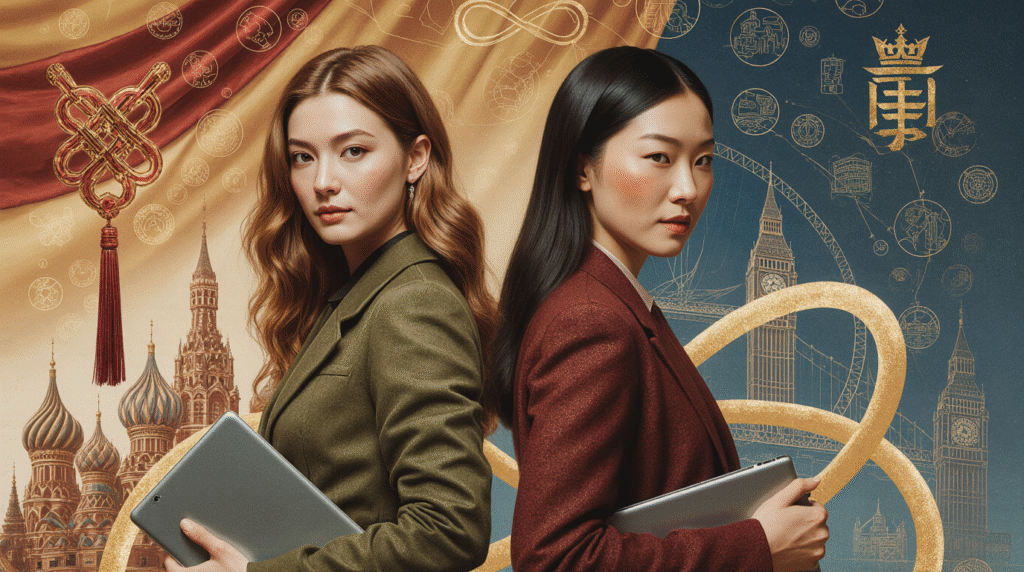Sometimes the most meaningful validation comes from unexpected quarters. This week, I discovered that Eastern Empire had been the subject of a comprehensive critical analysis in Arts & Culture UK, penned by respected critic and reviewer Yulia Tulegenova.
Reading Tulegenova’s piece felt like watching someone carefully dissect the architectural blueprints of a building you’d constructed intuitively. Her analysis goes far beyond plot summary, diving deep into what she calls the “dialectic of civilisations” at the heart of Marina and Li Jing’s friendship. She writes: “Eastern Empire is a profound and multi-layered work that explores the pain points of the modern world… The novel asserts that any empire built on ambition is fragile. The only empire that has a chance of survival is one built on the painful but necessary art of forgiveness and understanding.”
What strikes me most is how Tulegenova identifies the symbolic architecture I’d woven throughout – from the Aurora platform as “embodiment of art freed from matter and commerce” to London as “a neutral battlefield, a global crossroads.” She sees the cities not as mere scenery but as “active participants in the drama,” which feels profoundly gratifying.
Her description of the work as moving “from the genre of industrial drama to the realm of high tragedy” captures exactly what I’d hoped to achieve – that sense of personal stakes escalating into something universally resonant.
For any writer, having your work understood at this level by a serious critic feels like a small miracle. It’s validation that the months spent crafting each scene, each symbolic layer, each character motivation weren’t just exercises in self-indulgence but genuine attempts to engage with the complexities of our interconnected world.
The piece reinforces my belief that literature’s role isn’t to provide easy answers but to create spaces where difficult questions can breathe and evolve.
Posted from London, where the echo of critical discourse still lingers in the best possible way.
— Writer Julia Zolotova

